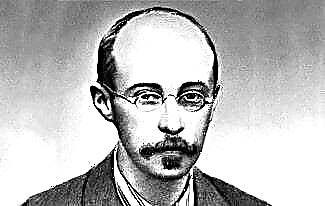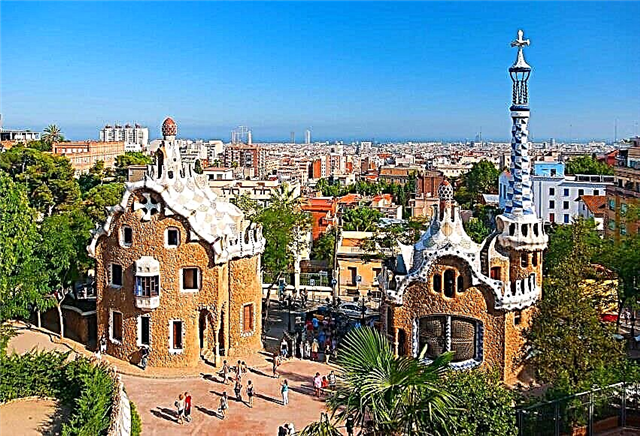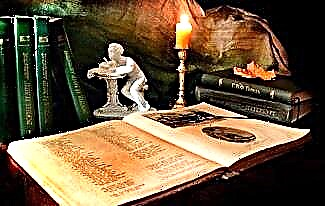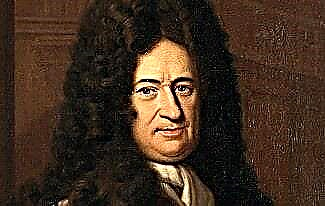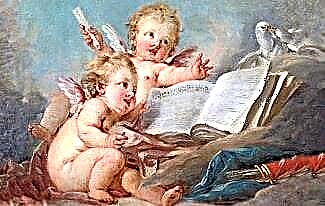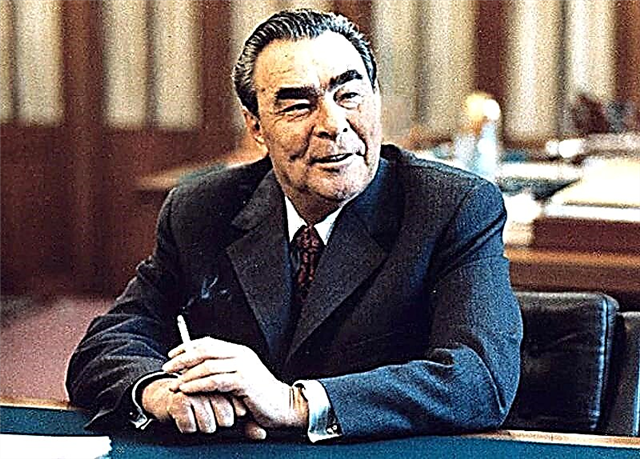Nika Georgievna Turbina (at birth Torbin; 1974-2002) - Soviet and Russian poet. Has gained worldwide popularity thanks to poems written in childhood. Winner of the Golden Lion Award.
There are many interesting facts in the biography of Nika Turbina, which we will talk about in this article.
So, here is a short biography of Turbina.

Biography of Nika Turbina
Nika Turbina was born on December 17, 1974 in the Crimean Yalta. Her father, Georgy Torbin, worked as an actor, and her mother, Maya Nikanorkina, was an artist. Later, her father's surname will become the basis of her pseudonym.
Childhood and youth
The parents of the future poetess broke up when she was still little. For this reason, she grew up and was brought up in a mother's family, with her grandmother Lyudmila Karpova and grandfather, Anatoly Nikanorkin, who was a writer.

In the Turbina family, much attention was paid to art and literature. The girl was often read poems, which she listened to with great pleasure. Nika especially liked the work of Andrei Voznesensky, who maintained friendly relations with her mother.
An interesting fact is that some biographers Turbina claim that Voznesensky was her real father, but such assumptions are not supported by reliable facts. In addition to painting, Maya Nikanorkina also wrote poetry.
From an early age, Nika Turbina suffered from asthma, which often prevented her from falling asleep at night. From the age of 4, during insomnia, she asked her mother to write down verses under dictation, which, in her opinion, God himself spoke to her.
Poems, as a rule, concerned the girl's personal experiences and were written in blank verse. Almost all of them were very sad and depressed.
Creation
When Nika was about 7 years old, her mother showed her poems to the famous writer Yulian Semenov. When the writer read them he could not believe that the author of the poems was a little girl.
Thanks to the patronage of Semenov, Turbina's works were published in Komsomolskaya Pravda. It was from that moment in her biography that the young poetess gained great popularity among her compatriots.
Then the girl, on the advice of her mother, took the pseudonym "Nika Turbina", which later became her official name and surname in her passport. By the age of 8, she had written so many poems that they were enough to create the collection "Draft", which was translated into dozens of languages.

It is worth noting that Yevgeny Yevtushenko helped Nika in every possible way, both in his creative and personal life. He made sure that her works were read by as many people as possible, not only in the USSR, but also abroad.
As a result, at the suggestion of Yevtushenko, 10-year-old Turbina became a participant in the international poetry competition "Poets and the Earth", organized within the framework of the Venice Forum. It is curious that this forum was held once every 2 years, and its jury included experts from different countries.
After a successful performance, Nika Turbina was awarded the main award - the "Golden Lion". The girl glorified the Soviet Union and made her write about herself in the world press. They called her a child prodigy and tried to understand how a child manages to write such "adult" poems filled with emotional pain and feelings.
Soon Nika and her mother settled in Moscow. By that time, the woman remarried, as a result of which a half-sister, Maria, was born to Turbina. Here she continued to go to school, where she received rather mediocre grades and often quarreled with teachers.
In 1987, Turbina visited the United States, where she allegedly communicated with Joseph Brodsky. A couple of years later, viewers saw her in the film It Was By the Sea. This was her second and last appearance on the big screen, despite the fact that the girl often admitted that she wants to become an actress.
By that time, Nika no longer read her poems, but periodically continued to write. In 1990, her second and last poetry collection "Steps Up, Steps Down ..." was published.

Many biographers Turbina are inclined to believe that her mother and grandmother used Nika as profit, earning on her popularity. They were repeatedly advised to show the girl to psychologists, since the stormy creative life and world fame negatively affected her mental state.
At the same time, Yevtushenko refused to patronize the poetess and even stopped communicating with her relatives. The man also believed that Turbina's mother and grandmother were simply trying to get money out of him. In an interview, the poetess called it a betrayal on his part, but soon took her words back.
Criticism and the issue of authorship
Nika Turbina's inexplicable talent caused a lot of discussion in society. In particular, many experts questioned the authorship of her poems, suggesting that they could have been written by her relatives.
In response to such accusations, the girl presented the poem "Don't I Write My Poems?" One of her biographers, Alexander Ratner, studied many of the surviving drafts and manuscripts of the poetess, after which he concluded that not all of the poems were written by Turbina, but, for example, by her mother.
Many critics spoke of Nick as an overrated talent. They said that if it were not for the girl's age, they would hardly have paid attention to her work. Nevertheless, many authoritative writers spoke very highly of her poems.
Turbina's artistry, with which she read her works on stage, deserved special attention. According to the same Ratner, poetry was perceived much better in her performance than in print. A number of experts agree that the child's psyche did not cope with the stress and fame, and then oblivion.
Future life
Nika Turbina experienced the loss of fame extremely hard, as a result of which she was constantly in a depressed state. In high school, she already drank alcohol, dated different guys, often did not spend the night at home, and even cut veins.
After receiving a certificate, Turbina entered VGIK, wanting to connect her life with acting. However, a year later she lost interest in her studies and dropped out of college.
In 1994, Nika became a student at the Moscow Institute of Culture, where she was admitted without entrance exams. During this period of her biography, she already experienced serious mental problems, which manifested itself in impaired coordination of movements and poor memory.
For a while, Turbina received high marks in all disciplines and even started writing poetry again. However, on the day of her 20th birthday, she started drinking again, abandoning her studies and leaving for Yalta. Later, she barely managed to recover at the university, but only in the correspondence department.

In the spring of 1997, Nika was drinking with her friend in the apartment. During the gatherings, the young people began to quarrel. The girl, wanting to scare the guy, rushed to the balcony, but could not resist and fell down.
During the fall, the girl caught on a tree, which saved her life. She broke her collarbone and injured her spine. The mother took her daughter to Yalta for treatment. Turbine was sent to a mental hospital after a violent seizure, which was the first in her biography.
After her recovery, Nika could not find a job for a long time. However, she participated in amateur theater performances and wrote scripts for children's plays. The girl was still depressed and remembered her children's poems very badly.
Personal life
At the age of 16, Nika met the psychiatrist Giovanni Mastropaolo, who treated patients through art, including using the work of the poet. At his invitation, she went to Switzerland, where she essentially began to cohabit with a doctor.
An interesting fact is that Mastropaolo was 60 years older than Turbina. However, after about a year, their relationship ended and she returned home. Soon, the girl fell in love with the bartender Constantine, whom she planned to marry literally the day after they met.

Although the guy refused to marry Nika, the young people's romance lasted for about 5 years. Turbina's personal biography can hardly be called happy. Her last roommate was Alexander Mironov.
Doom
In May 2002, Mironov repaired his car, which Nika deliberately damaged, fearing a break in relations. At that moment, Turbina was drinking with her friend Inna and her friends in a nearby house.
Over time, Nika fell asleep, while Inna and her boyfriend went to buy another portion of alcohol. Waking up, the poetess was waiting for them, sitting on the windowsill of the 5th floor, her legs hanging down. Having trouble coordinating, she obviously awkwardly turned and hung on the window.
Passers-by who heard the screams tried to help the girl, but did not have time. She fell down, receiving severe injuries. The doctors who arrived in time could not save her, as a result of which the girl died from blood loss.
Nika Turbina died on May 11, 2002 at the age of 27.
Photo by Nika Turbina






